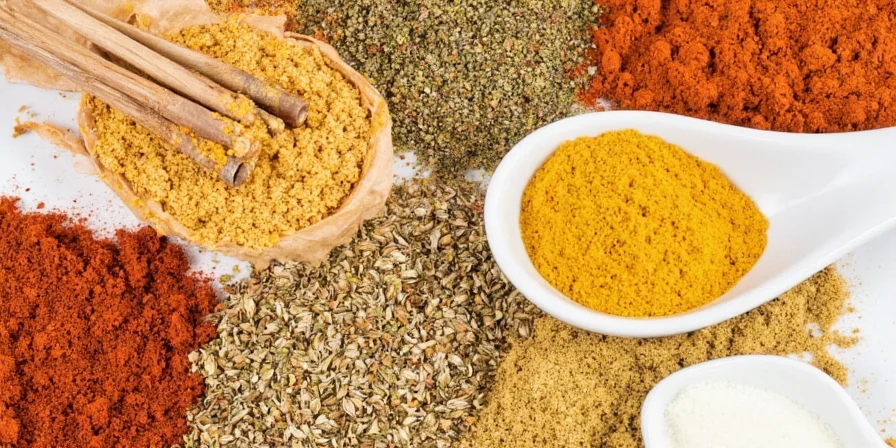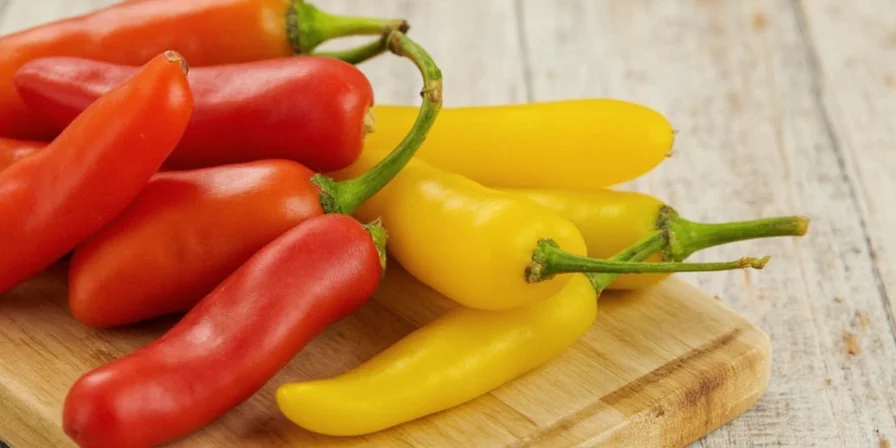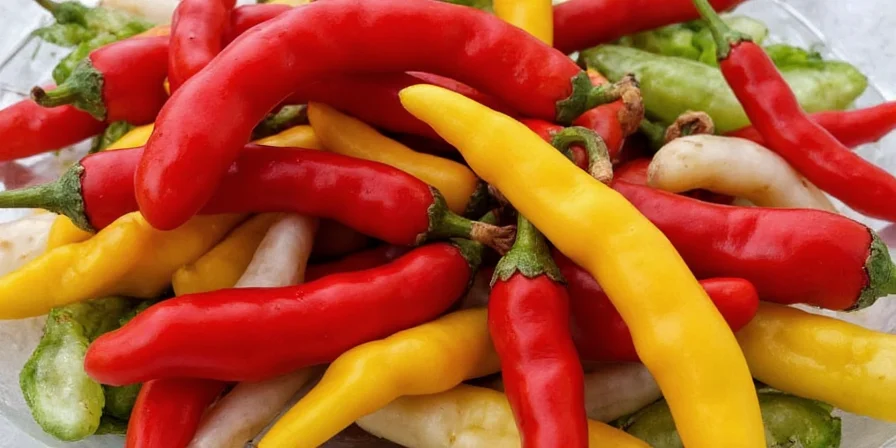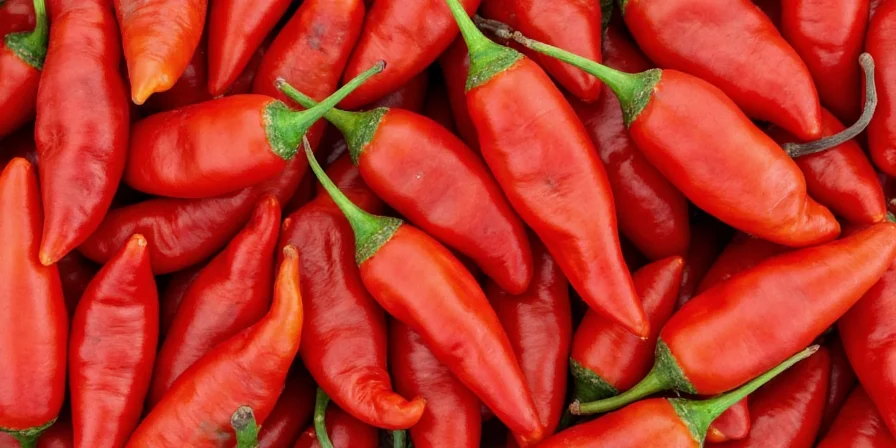Pepper is the fruit of the Piper nigrum plant—specifically the dried berries known as peppercorns. These tiny orbs are among the most widely used spices globally, available in various colors (black, white, green, and red), each with unique flavor profiles, harvesting methods, and culinary applications. Unlike chili peppers from the Capsicum family, black pepper is botanically distinct and delivers its signature warmth through piperine rather than capsaicin. This comprehensive guide reveals everything home cooks and food enthusiasts need to know about selecting, using, and understanding this essential spice.
Table of Contents
- What Exactly Is Pepper? Definition and Basics
- The Many Faces of Pepper: Black, White, Green, and Red
- A Rich History Spiced with Drama: From Currency to Kitchen Staple
- The Science Behind the Burn: Piperine and Flavor Chemistry
- How to Cook Like a Pro Using Pepper: Techniques and Tips
- Pepper vs. Chili: What's the Real Difference?
- Is Pepper Actually Good for You? Science-Backed Health Benefits
- Fun Facts About Pepper That Will Blow Your Mind
- Frequently Asked Questions
- Pepper Trivia Quiz: Test Your Knowledge
- Final Thoughts: Why Pepper Deserves a Prime Spot in Your Spice Rack

What Exactly Is Pepper? Definition and Basics
Pepper refers to the fruit of the Piper nigrum plant—dried berries called peppercorns. These small spheres rank among the world's most traded spices, making up approximately 35% of global spice commerce. Harvested at different maturity stages and processed uniquely, they yield distinct varieties: black (unripe berries, sun-dried), white (fully ripe berries with outer layer removed), green (unripe, fresh or pickled), and red (fully ripe berries).
Crucially, black pepper isn't related to chili peppers despite common confusion. While chilies belong to the Capsicum family and deliver heat through capsaicin, pepper comes from the Piperaceae family and creates its characteristic warmth via piperine. Understanding this distinction helps prevent culinary mishaps when recipes specify "pepper" without clarification.

The Many Faces of Pepper: Black, White, Green, and Red
Pepper varieties differ based on harvest timing and processing methods, creating unique flavor profiles suitable for specific culinary applications. Here's how they compare:
| Type | Harvest Stage | Flavor Profile | Best Used For |
|---|---|---|---|
| Black Pepper | Unripe berries, sun-dried | Strong, pungent, earthy with woody notes | Seasoning meats, soups, stews, universal seasoning |
| Green Pepper | Unripe, preserved fresh or pickled | Fresh, herbal, grassy with subtle heat | Asian dishes, sauces, seafood, early cooking addition |
| White Pepper | Ripe berry, outer layer removed | Mellow, earthy, slightly musty with clean heat | Cream sauces, mashed potatoes, light-colored dishes |
| Red Pepper | Very ripe, sometimes dried | Fruity, floral, sweet-spicy with berry notes | Exotic dishes, gourmet recipes, chocolate desserts |

A Rich History Spiced with Drama: From Currency to Kitchen Staple
Pepper's historical significance surpasses its culinary value. During Roman times and the Middle Ages, peppercorns functioned as currency—people paid rent, dowries, and taxes with this "black gold." In medieval Europe, a pound of pepper could equal the value of a serf or small farm.
The Age of Exploration saw European powers wage wars over spice routes. Christopher Columbus's voyages were partly motivated by finding direct access to pepper-growing regions in India—his search for a western route to these valuable markets accidentally led to the Americas. Modern pepper markets reflect a shift from colonial exploitation to sustainable farming, with Vietnam now producing over 34% of the world's pepper, followed by India and Indonesia.

The Science Behind the Burn: Piperine and Flavor Chemistry
Piperine—the alkaloid compound constituting 4-9% of black pepper—creates its distinctive warmth by stimulating thermoreceptors on the tongue. Unlike capsaicin's burning sensation from chilies, piperine delivers a sharp, woody heat that enhances other flavors without overwhelming them.
Scientific research reveals piperine's significant impact on nutrient absorption. Studies show it increases curcumin bioavailability by 2,000%, explaining why turmeric and black pepper are paired in traditional curry recipes. It also enhances absorption of selenium, beta-carotene, and B-vitamins, making pepper both a flavor enhancer and nutritional booster.
How to Cook Like a Pro Using Pepper: Techniques and Tips
Professional chefs maximize pepper's potential through precise techniques:
- Grind fresh for maximum flavor: Pre-ground pepper loses 30% of volatile oils within 15 minutes. A quality peppermill preserves piperine and essential oils, delivering brighter flavor.
- Use white pepper in creamy dishes: Its uniform color blends seamlessly into light sauces without visible specks, while providing clean heat.
- Add green pepper early: Being softer and more aromatic, green peppercorns should be introduced early in cooking to allow flavor infusion.
- Experiment with red pepper: Its fruity notes complement dark chocolate desserts or game meats—try pairing with venison or duck.
- Control heat levels: Toast peppercorns briefly in a dry pan to mellow sharpness, or crush rather than grind for more intense heat.
- Store properly: Keep peppercorns in an airtight container away from light—whole peppercorns retain flavor for 2-3 years versus 6 months for ground pepper.

Pepper vs. Chili: What's the Real Difference?
Despite both delivering heat, pepper and chili differ fundamentally:
| Feature | Pepper (Piper nigrum) | Chili (Capsicum spp.) |
|---|---|---|
| Heat Compound | Piperine (sharp, woody warmth) | Capsaicin (burning sensation) |
| Heat Measurement | Not measured on Scoville scale | Measured on Scoville scale (0-2,200,000+) |
| Origin | India, Sri Lanka | Central/South America |
| Botanical Family | Piperaceae | Solanaceae (nightshade) |
Is Pepper Actually Good for You? Science-Backed Health Benefits
Research confirms several health benefits associated with moderate pepper consumption:
- Enhanced nutrient absorption: Piperine increases curcumin bioavailability by up to 2,000% and improves absorption of selenium, beta-carotene, and B-vitamins.
- Antioxidant properties: Contains compounds that combat oxidative stress and may reduce inflammation markers.
- Digestive health: Stimulates hydrochloric acid production, improving protein digestion and nutrient breakdown.
- Metabolic support: Some studies suggest piperine may support healthy metabolism and weight management.
Consumption should remain moderate (1-2 grams daily)—excessive amounts may irritate the stomach lining, particularly for those with sensitive digestive systems. Consult a healthcare provider before using pepper medicinally.

Fun Facts About Pepper That Will Blow Your Mind
- The word "pepper" derives from Sanskrit "pippali," originally referring to long pepper.
- Vietnam currently produces over 34% of the world's black pepper, making it the top global producer.
- During the sacking of Rome in 410 CE, the Visigoths demanded 3,000 pounds of pepper as part of their ransom.
- High-quality Tellicherry peppercorns (larger, riper berries) contain up to 9% piperine versus 4-7% in standard varieties.
- Pepper was so valuable that during the Middle Ages, London merchants could repay debts with peppercorns.
Frequently Asked Questions
Why is freshly ground pepper superior to pre-ground?
Pre-ground pepper loses up to 30% of volatile aromatic compounds within 15 minutes through oxidation. Fresh grinding preserves piperine and essential oils, delivering significantly brighter flavor and complex aroma that transforms dishes. Scientific studies confirm freshly ground pepper contains 40-60% more active compounds than pre-ground versions stored for just one week.
Can I substitute different pepper types in recipes?
Yes, but strategically. White pepper works in cream sauces where black specks are undesirable. Green pepper adds freshness to Thai dishes but loses potency if added late in cooking. Red pepper's fruitiness shines in chocolate desserts but shouldn't replace black in savory applications. Substitution ratios: 1:1 for black/white pepper, but use 25% less green pepper due to higher moisture content, and 50% less red pepper as its flavor is more concentrated.
Does pepper quality affect cooking results?
Absolutely. Premium Tellicherry peppercorns (larger, riper berries) offer complex fruity notes versus standard Lampong pepper's sharper heat. Quality impacts both flavor depth and piperine concentration—higher quality peppercorns contain 7-9% piperine versus 4-6% in lower grades. This directly influences dish outcomes, with premium pepper providing more nuanced flavor and greater nutritional benefits.
What's the difference between black pepper and white pepper?
Black pepper comes from unripe green berries that are sun-dried, developing their characteristic dark color and strong flavor. White pepper is produced by removing the outer layer of fully ripe red berries, leaving just the seed. This processing difference creates distinct flavor profiles: black pepper has complex, pungent notes while white pepper offers earthier, mustier heat without visual specks—making it ideal for light-colored dishes.
Pepper Trivia Quiz: Test Your Knowledge
Time to test your pepper expertise! Here's a quick quiz to see if you're a true pepper connoisseur:
- Which country is currently the largest producer of black pepper?
- A) Brazil
- B) India
- C) Vietnam
- Which part of the peppercorn contains most of the piperine?
- A) Inner seed
- B) Middle layer
- C) Outer layer (pericarp)
- What was pepper's historical value equivalent to during medieval times?
- A) Equal to silver
- B) More valuable than gold
- C) Similar to common salt
Answers: 1-C, 2-C, 3-B
Final Thoughts: Why Pepper Deserves a Prime Spot in Your Spice Rack
Pepper transcends its role as a simple seasoning to become a culinary cornerstone with historical significance, scientific intrigue, and practical kitchen value. Understanding its varieties, proper usage techniques, and science-backed benefits transforms how you approach everyday cooking.
By incorporating these insights—grinding fresh, selecting appropriate varieties for specific dishes, and understanding its nutritional synergy—you'll elevate ordinary meals to extraordinary experiences. Next time you reach for that shaker, remember you're holding a spice with millennia of history, complex chemistry, and the power to transform flavors.

Elevate your cooking—one precise grind at a time.











 浙公网安备
33010002000092号
浙公网安备
33010002000092号 浙B2-20120091-4
浙B2-20120091-4